UPDATE | June 27, 2022
In this article, I will explain in detail how foreigners receive medical examinations at Japanese hospitals. In addition, we will provide solutions for foreigners' problems at hospitals (doctors do not understand the language, do not know which hospital to go to, financial anxiety about health insurance and medical expenses, etc.).
INDEX
The medical system varies from country to country, so let's start with a brief explanation of the medical system in Japan.
In Japan, everyone is supposed to get public medical insurance. And if you get sick or injured, you can basically get medical treatment at any hospital or clinic without reservation.
In principle, 30% of the medical expenses will be borne by the person (public insurance covers the remaining 70%), but if the treatment is not covered by insurance, the full amount will be borne.
I will explain the medical system in Japan in more detail later.
[PR]
If you have a sore throat or fever, first contact the consultation desk for new coronavirus infections. The contact point is different for each prefecture, so check the information in your area. You can check the information on consultation / medical care and the contact information of the consultation / consultation center published by each prefecture below.
https://www.mhlw.go.jp/stf/seisakunitsuite/bunya/kenkou_iryou/covid19-kikokusyasessyokusya.html
The general flow when a foreigner receives a medical examination in Japan is as follows.
1. Fill out the medical treatment application form
2. Notify the insurance coverage
3. Show your ID
4. Get prior payment information
5. Ask for an approximate amount for medical expenses
6. Fill out the questionnaire
7. Get a medical examination
8. If you need a medical certificate, please issue it.
9. Pay medical expenses and receive a prescription
Now, let's take a closer look at each step.
"Medical communication is more difficult than usual conversation. If you are worried about Japanese, go to the hospital or clinic you are thinking of going to.
・ Can foreigners be examined?
・ Are there any doctors or staff who can speak other than Japanese?
It is a good idea to inquire in advance. If you have a friend who can speak Japanese, you may be able to help with inquiries to the hospital or accompany you to the clinic.
In order to facilitate medical treatment, hospitals and clinics have prepared medical treatment application forms, and you are required to fill them out.
With personal information such as name, Street address, gender, age, contact information (Telephone Number)
・ Is this the first time for me to receive medical treatment at this hospital?
・ Is there a letter of introduction?
・ Are you making an appointment for medical treatment?
・ Health insurance coverage
・ Physical condition of concern (reason for requesting medical treatment)
・母国語、母国語以外に話せる言語
・ Do you need an interpreter?
・ I would like you to give special consideration for religious reasons.
You need to answer questions about medical care.
We will proceed with medical treatment based on the information entered here, so please answer honestly.
Let the hospital know if you have Japanese public health insurance. If it is included, 30% of the treatment cost will be borne, and if it is not included, the full amount will be borne. If you have forgotten your health insurance card even if you have Japanese public insurance, you will have to pay the full amount and have the difference returned by showing your health insurance card at a later date.
Please note that even if you have public medical insurance in your own country or private insurance overseas, you will be charged the full amount. Even if you are covered by private insurance, you will need to pay the full amount of the treatment costs in Japan and then claim it from the insurance company at a later date.
Present your passport or residence card (only available to foreigners who have been in Japan for three months or more).
Outpatient / hospitalization procedures and medical treatment methods may differ between Japan and overseas. Payment of medical expenses is a typical example, so let's check the flow from medical treatment in Japan to payment of medical expenses.
Ask for a rough estimate of how much treatment will cost. Costs vary depending on the diagnosis and treatment, but this may ease your financial worries.
In Japan, it is common to proceed with examinations and treatments according to the doctor's ideas and policies, and pay the medical expenses presented at the end, but "medical care is also part of the contract. If you are from a premised country, you may feel resistance.
If you would like to know what kind of treatment will be performed and how much it will cost before deciding whether to undergo treatment, be sure to let them know that you have this preference.
The questionnaire is important for giving your doctor more information about your medical condition and making a more accurate diagnosis. Especially for those who are not familiar with Japanese, it is difficult to convey the symptoms through dialogue, so use the questionnaire to convey the symptoms accurately.

Let's talk about specific symptoms that cannot be covered by the questionnaire. Your doctor will perform the necessary tests and treatments based on what you have told us.
If you need a medical certificate at a later date, such as when making a claim to an insurance company, you will need to request issuance. Check how much it will cost to issue a medical certificate, how to pay, how to receive it, what languages are available (some have only Japanese medical certificates), etc. before requesting. ..
When the examination is over, you will be given a piece of paper that describes what kind of treatment you have done today, so submit it to the accounting counter. The medical expenses calculated based on it will be presented, so please pay by the designated method. Paying money can be troublesome. Don't forget to get a receipt as proof that your payment has been completed.
If a medicine is prescribed, a prescription will be given. This is the end of medical treatment at the hospital.
Take your prescription to the pharmacy and get your medicine. You can use any pharmacy in Japan, but you will be charged for the medicine in addition to the medical examination fee paid at the hospital.
If you go to a hospital in Japan
・ Go to the hospital and tell them Basic information such as your name, Street address, and age, and the physical symptoms you want to see.
・ Submit your ID and insurance card to check if there are any mistakes.
・ See a doctor
・ You will be billed based on the details of the tests and treatments you received, so you will have to pay.
・ If the medicine is prescribed, receive the prescription and get the medicine at the pharmacy.
That is the basic flow.
In Japan, there is no custom of having the doctor show the details of the medical examination and the amount billed in advance, and if he / she is satisfied, he / she will receive treatment. Therefore, when a foreigner receives treatment, he / she may have trouble paying the expenses.
Based on the medical situation in Japan, if there is a request that you want to do this, let's actively convey it and check it each time.
In addition, the items required to go to the hospital are summarized below. Please refer to it when preparing to go to the hospital.
[What to bring at a Japanese hospital]
・ Health insurance card (for those who have Japanese public medical insurance)
・Identification (passport or residence card)
・ Cash or credit card. (Many hospitals do not accept credit card payments, so it is recommended to bring cash.)
From here, I will tell you about the problems that foreigners have at Japanese hospitals.
What is the biggest problem for foreigners when they receive medical examinations and treatments at Japanese hospitals?
According to the "Basic Survey Report for Foreign Residents Residents in Japan 2nd Year" by the Immigration Bureau of Japan, the problems that foreigners have at Japanese hospitals are "I couldn't tell the symptoms accurately at the hospital" and "I was successful at the reception desk of the hospital." "I couldn't speak" and "I can't understand the language" are the most common, and "How to choose a hospital" and "Medical expenses" are also raised.
Source:Immigration Bureau of Japan "Basic Survey Report for Foreign Residents in Reiwa 2nd Year"
Also, in another survey conducted by the membership media "YOLO JAPAN Co., Ltd.", which provides various services related to living for foreigners living in Japan, the number one "people who do not speak Japanese / can speak foreign languages". "I don't have any" and "I can't understand the language", and the second place is "I don't know what department to go to".
What was the problem at the hospital?
1. I can't speak Japanese / No one can speak a foreign language 50%
2. I don't know what department to go to 29%
3. Long waiting time 26%
4. High treatment and insurance premiums 23%
Source: YOLO JAPAN Co., Ltd. "Survey on Medical Support in Japan"
When foreigners living in Japan use Japanese medical institutions, the biggest problem is that they cannot understand the language when talking to the receptionist or doctor, and they cannot explain their symptoms. I understand.
So, here are two pieces of information that will help you communicate at the hospital reception and tell your doctor about your symptoms.
YOLO MEDICAL (multilingual questionnaire creation service)
It is a service that can automatically translate when you answer a question and create a questionnaire in Japanese, and it supports 17 languages such as English, Vietnamese, and Portuguese. Making it when you go to the hospital and taking it with you will help you to accurately convey your symptoms.
A guide to help you when you feel sick so that you can travel safely in Japan
A website provided by the Japan National Tourism Organization that is useful when receiving medical care in Japan. You can search for hospitals, regions, supported languages, medical subjects, available credit cards, base medical institutions (hospitals that serve as medical care bases for foreign patients selected by prefecture), JMIP (multilingual medical care). You can see information, whether you will respond in consideration of different cultures and religions), and whether you will respond in an emergency.
Next to the "language barrier", the next problem for foreigners in Japanese hospitals is that even if they have any abnormal physical condition or some symptoms, they are worried that they do not know which department to visit. I will tell you the solution in that case.
For common symptoms such as headaches, abdominal pain, and colds, see an internal medicine department. For other symptoms, we will consider solutions below.
If you search the internet with the symptom you are interested in and the keyword "what department you are going to see", you will find various information, but there are some that you can trust and some that you cannot. It is a good idea to find out who is sending the information and refer to the reliable information provided by medical institutions and doctors.
In addition, the general hospital Meiwa Hospital, which has many clinical departments, publishes a summary of common symptoms and how many departments should be consulted on the official website.
I think it will be helpful when you have a medical examination.
Meiwa Hospital official website "What department do you want to see?"
If you are wondering "Should I go to the hospital right away?" Or "Should I call an ambulance?" Due to a sudden injury or illness, please call "# 7199" (emergency relief center business).
Doctors, nurses and trained counselors will listen to your condition, determine if it is urgent, and arrange an ambulance if necessary. Even if it is determined that this is not an urgent case, you will be informed of which medical institution you can visit.
This project may or may not be carried out under a different number, so it is a good idea to check the situation in your area in case of "what if". ..
If it is not urgent, we recommend that you call a general hospital that has many departments. Large hospitals often require appointments and referral letters to see you, so it's best to contact us in advance.
One of the problems that foreigners have at Japanese hospitals is financial aspects (health insurance and medical expenses).
As I explained at the beginning, if you do not have Japanese public medical insurance, you will be responsible for all medical expenses. If you have Japanese public medical insurance, you will be responsible for 30% of the medical expenses paid by the individual if you show your health insurance card. (The remaining 70% is covered by public insurance)
In the case of public medical insurance in your own country or private insurance overseas, even if you have it, I told you earlier ("2. Confirmation of insurance coverage" in "Flow of foreigners receiving medical examinations at Japanese hospitals"). As you said, it is not applicable in Japan, so you will be responsible for all medical expenses.
In Japan, public medical insurance is operated based on the Health Insurance Law, so it is called "health insurance". Except for those who stay in Japan for sightseeing, all people in Japan are required to take out health insurance so that they can receive medical care with peace of mind.
There are three main types of health insurance: "employee insurance (work area insurance)", which is mainly taken out by employees of the company, "national health insurance", which is taken out by self-employed or retired people, and people aged 75 and over. There is "Medical Insurance for the Elderly Elderly".
Health insurance premiums vary depending on the insurance and income you have, but the higher your income, the greater the burden.
National Health Insurance is run by prefectures and municipalities. Foreigners who stay in Japan for 3 months or more and do not have company health insurance must have national health insurance. Also, even if you plan to stay for less than 3 months when you enter Japan, if you plan to stay for 3 months or more after that, you must take out National Health Insurance. Please be careful if you have been staying for more than 3 months.
Health insurance (sometimes called social insurance) is insurance that people who work for a company take out. Foreign nationals are also required to join because they are obliged to join regardless of nationality.
As I mentioned at the beginning, even if you are a foreigner, if you have health insurance and show your health insurance card, the medical expenses paid by the individual will be 30% (30%), which is the same as that of Japanese people.
In addition, insurance premiums for international students are calculated based on the income (part-time job, etc.) during the previous year. If your income is not declared, you will not be able to calculate the correct insurance premiums, so be sure to declare it at the municipal office where you live. If the previous year's income is below a certain standard, the insurance premium will be reduced. Even if you don't have or have little income, you still need to declare your income, so don't forget to declare it.
At the end of the problems that foreigners have at Japanese hospitals, consider the waiting time at the hospital.
It is often said that "you have to wait for a long time at the hospital", but the materials released by the Ministry of Health, Labor and Welfare (Overview of Reiwa 2 (2020) medical treatment behavior survey (approximate number)), The waiting time for outpatient consultation was the highest at 27.9% for "less than 15 minutes", followed by "15 minutes to less than 30 minutes" at 25.8% and "30 minutes to less than 1 hour" at 20.9%. %, And about 70% receive medical examinations with a waiting time of less than 1 hour.
According to this survey by the Ministry of Health, Labor and Welfare, there is not much waiting time, but it is also true that some hospitals have long waiting times. From here, I will explain the reason why the waiting time of the hospital becomes long and the reservation as a solution.
There are several reasons why you may have to wait longer in the hospital.
First of all, the time that many people want to go to the hospital overlaps. A lot of people gather at the same time to form a waiting line, and no matter how efficiently the medical treatment is carried out, if people come to it one after another, the line will become long.
Second, it can take some time to understand the patient's situation. For proper medical examination and treatment, it is necessary to properly grasp the patient's current condition. However, to do so, we must spend some time communicating. This can be time consuming, especially for first-time patients.
Finally, the calculation of medical fees is very complicated. If it takes a long time to calculate and issue the bill, there will be a situation where you will have to wait for accounting.
Even if each of these is small, the overlapping of these causes the patient to wait for a long time.
In order to reduce the stress of congestion and waiting time in the hospital, some hospitals can make appointments for medical treatment. The reservation system differs depending on the hospital, but there are roughly two types: order reservation and time reservation.
・ Order reservation
You can book the order of examination for the day. For example, if it is "No. 5", it means that you can see the doctor at the 5th place of the day. It is fair because you can see it in order, but the slower the number, the more difficult it is to read the waiting time.
・ Time reservation
Make a reservation by deciding the visit time, saying "Please come at XX on XX days". It's nice to know exactly when to go to the hospital, but sometimes you have to wait because it took a long time to see a person the previous time.
If you can make a reservation, make a reservation in advance so that you can receive medical treatment as smoothly as possible. Each hospital is trying to reduce the waiting time as much as possible, such as notifying the E-mail address registered in advance when the consultation time is approaching.
Finally, let's take a quick look at what we've seen so far.
In Japan, if you get sick or injured, you can basically get medical treatment at any hospital or clinic without reservation.
Even if you are a foreigner, if you have health insurance and show your health insurance card, the burden of medical expenses paid by an individual is 30% (30%), which is the same as that of Japanese people.
And in Japan, all people regardless of nationality are obliged to take out health insurance, and foreigners who do not fall under the exception must take out some kind of health insurance.
The general flow when a foreigner receives a medical examination in Japan is as follows.
・ Go to the hospital and tell them Basic information such as your name, Street address, and age, and the physical symptoms you want to see.
・ Submit your ID and insurance card to check if there are any mistakes.
・ See a doctor
・ You will be billed based on the details of the tests and treatments you received, so you will have to pay.
・ If the medicine is prescribed, receive the prescription and get the medicine at the pharmacy.
Please note that in Japan, there is no custom of having the doctor show the details of the medical examination and the amount billed in advance, and if he / she is satisfied, he / she will receive treatment. Is that there is. If you have any doubts or concerns, be sure to check each time.
This is a way to deal with problems for foreigners when they go to the hospital in Japan.
・ I can't understand the language
Medical interactions are more difficult than everyday conversation. If you are worried about communicating in Japanese, it is best to get support from Japanese people and friends / acquaintances who can speak Japanese. Another option is to find a hospital that can speak a foreign language.
Medical interactions are more difficult than everyday conversation. If you are worried about communicating in Japanese, it is best to get support from Japanese people and friends / acquaintances who can speak Japanese. Another option is to find a hospital that can speak a foreign language.
Information and services are provided on the web so that foreigners can communicate smoothly when they go to a Japanese hospital, so please make use of them.
・ I don't know what department to go to
Find reliable information online.
In case of an emergency (a situation where you are wondering whether to call an ambulance), you can get a telephone consultation.
・ Wait for a long time
Some hospitals have a reservation system. Use the reservation system to summarize the information required for the examination and what you want to ask the teacher in advance so that you can have a smooth examination.

アクセス日本留学Editorial Department.アクセス日本留学" where foreign students can request materials to find Japanese schools, and hold "advancement information sessions for foreign students".
[PR]
[PR]